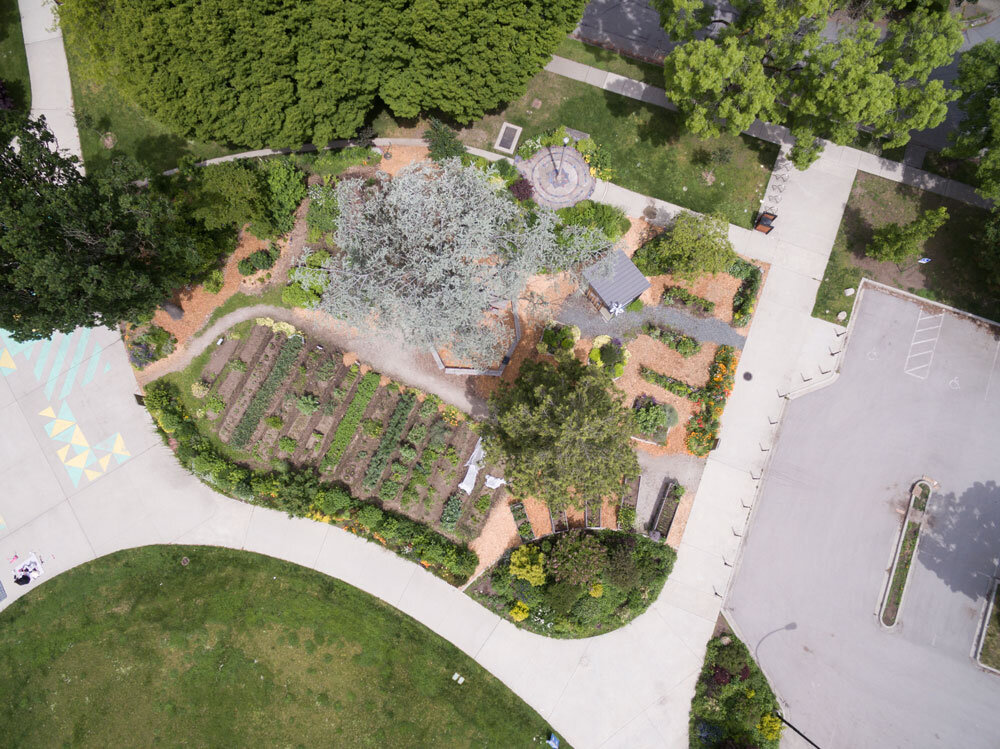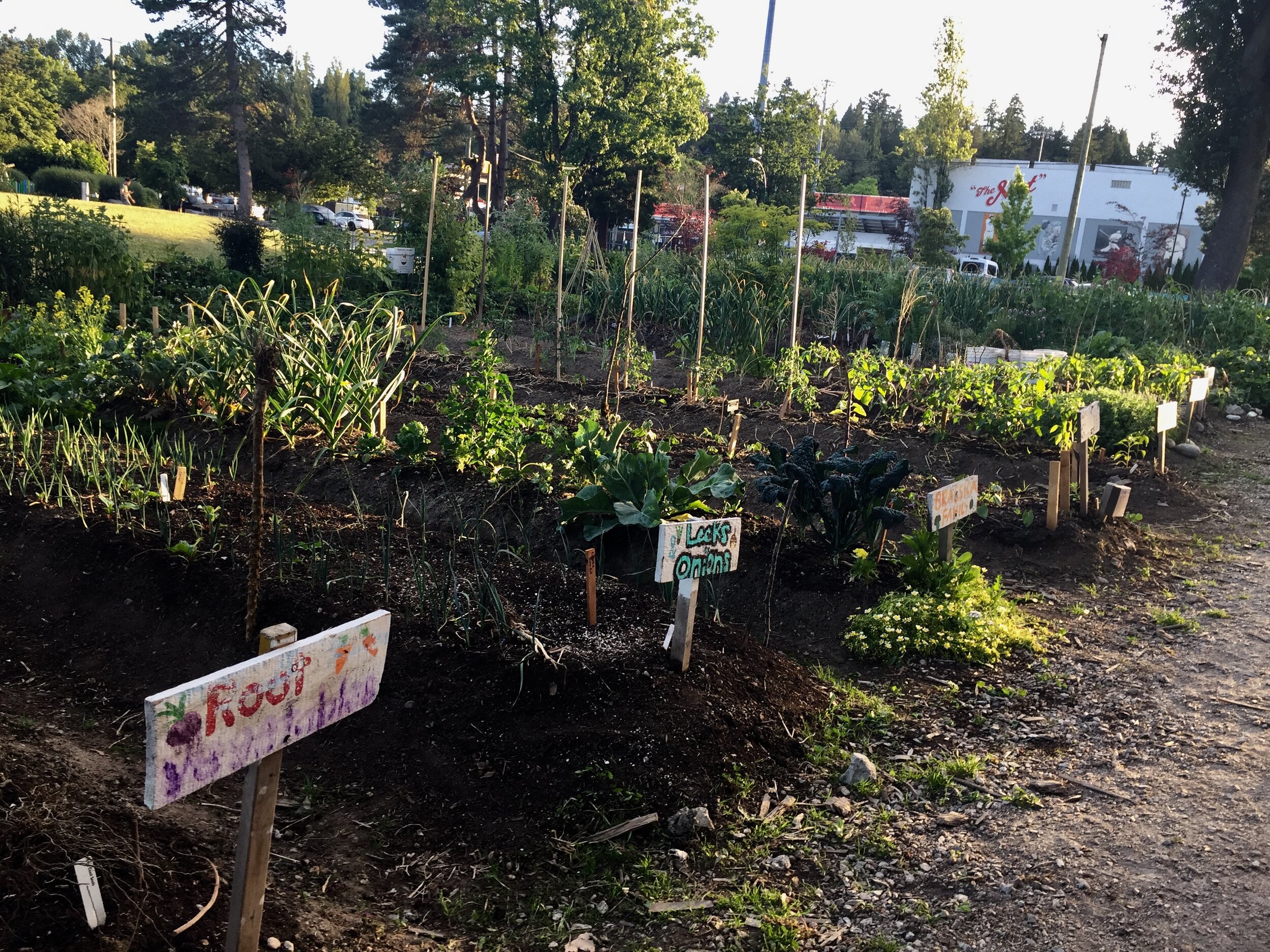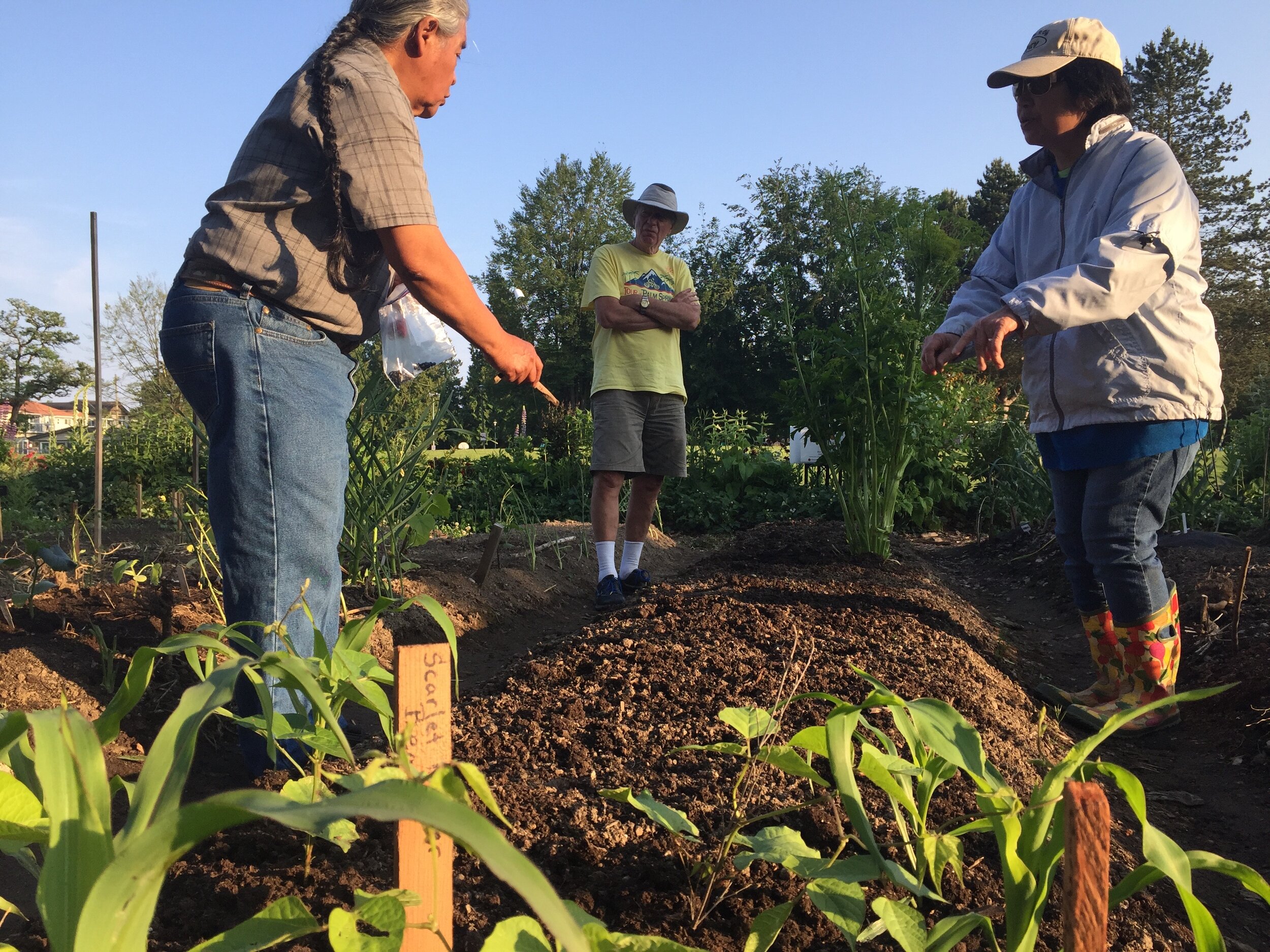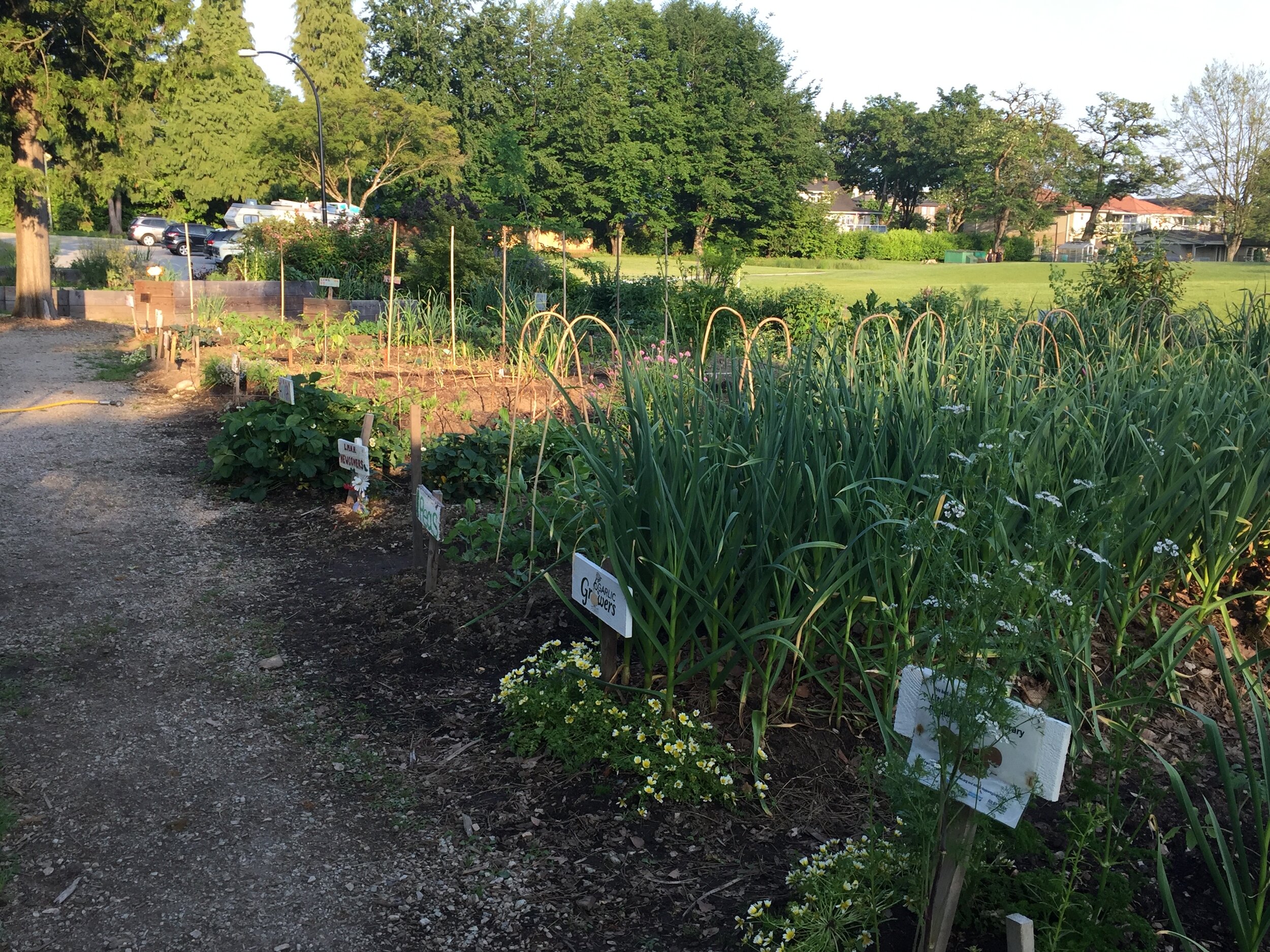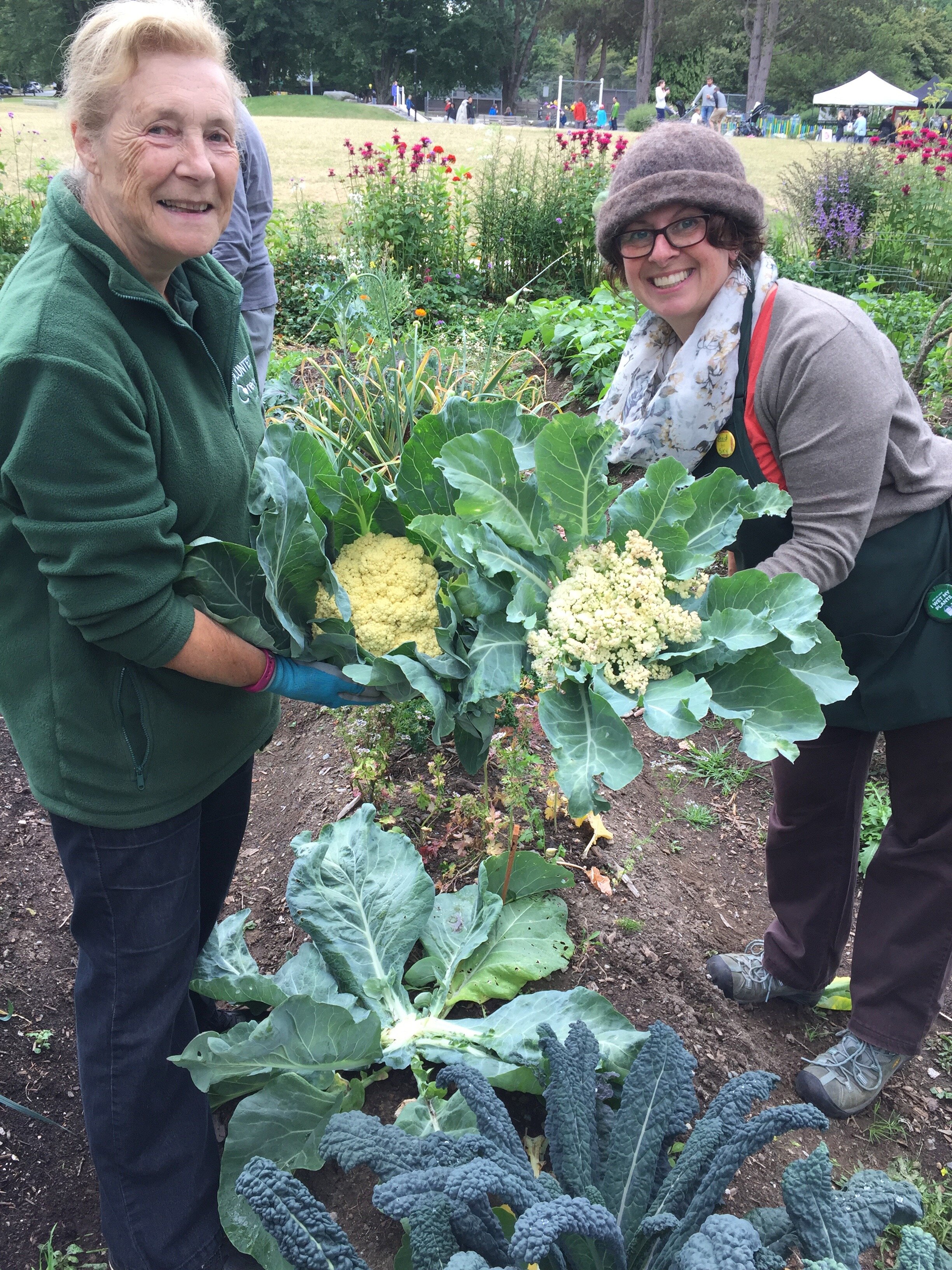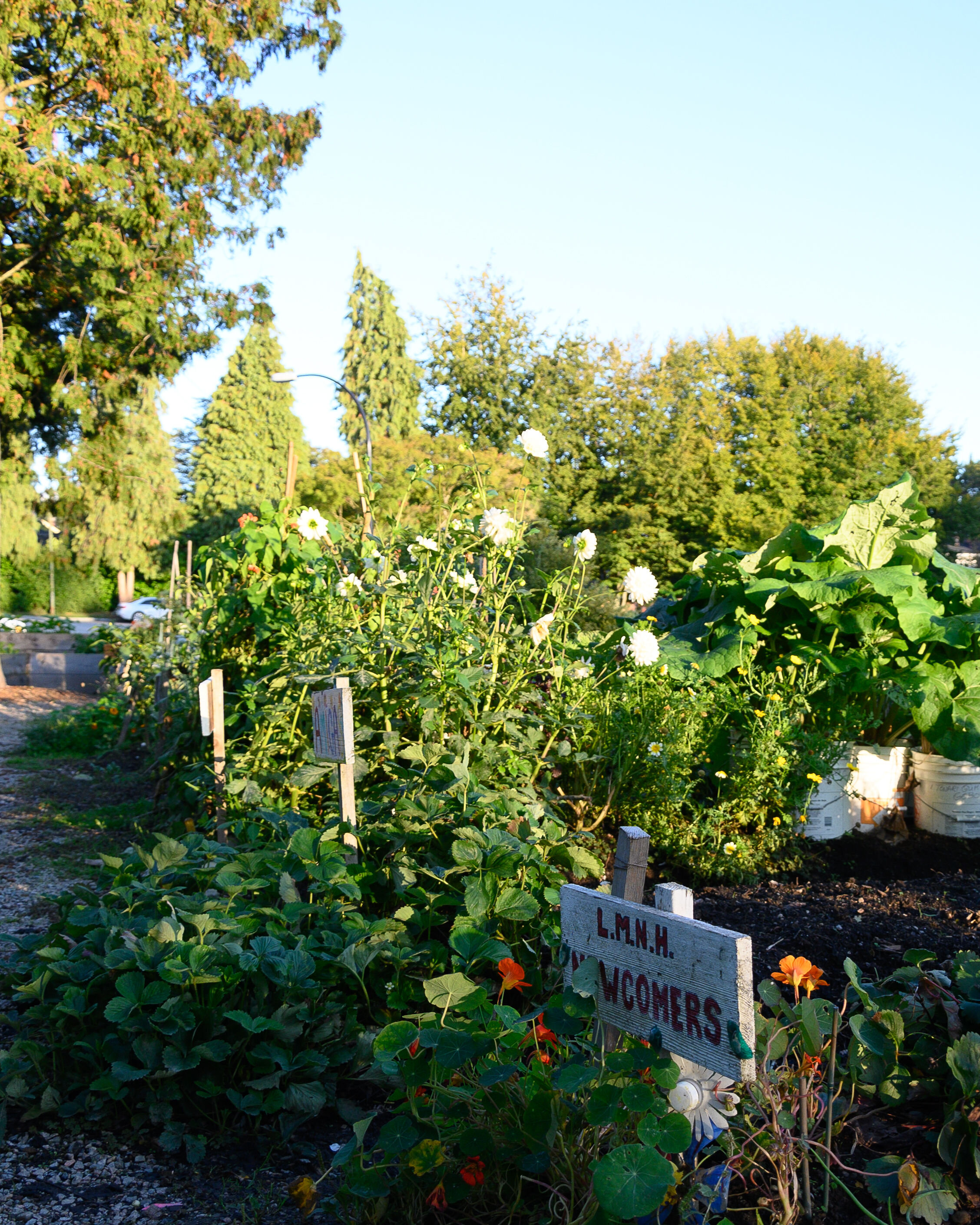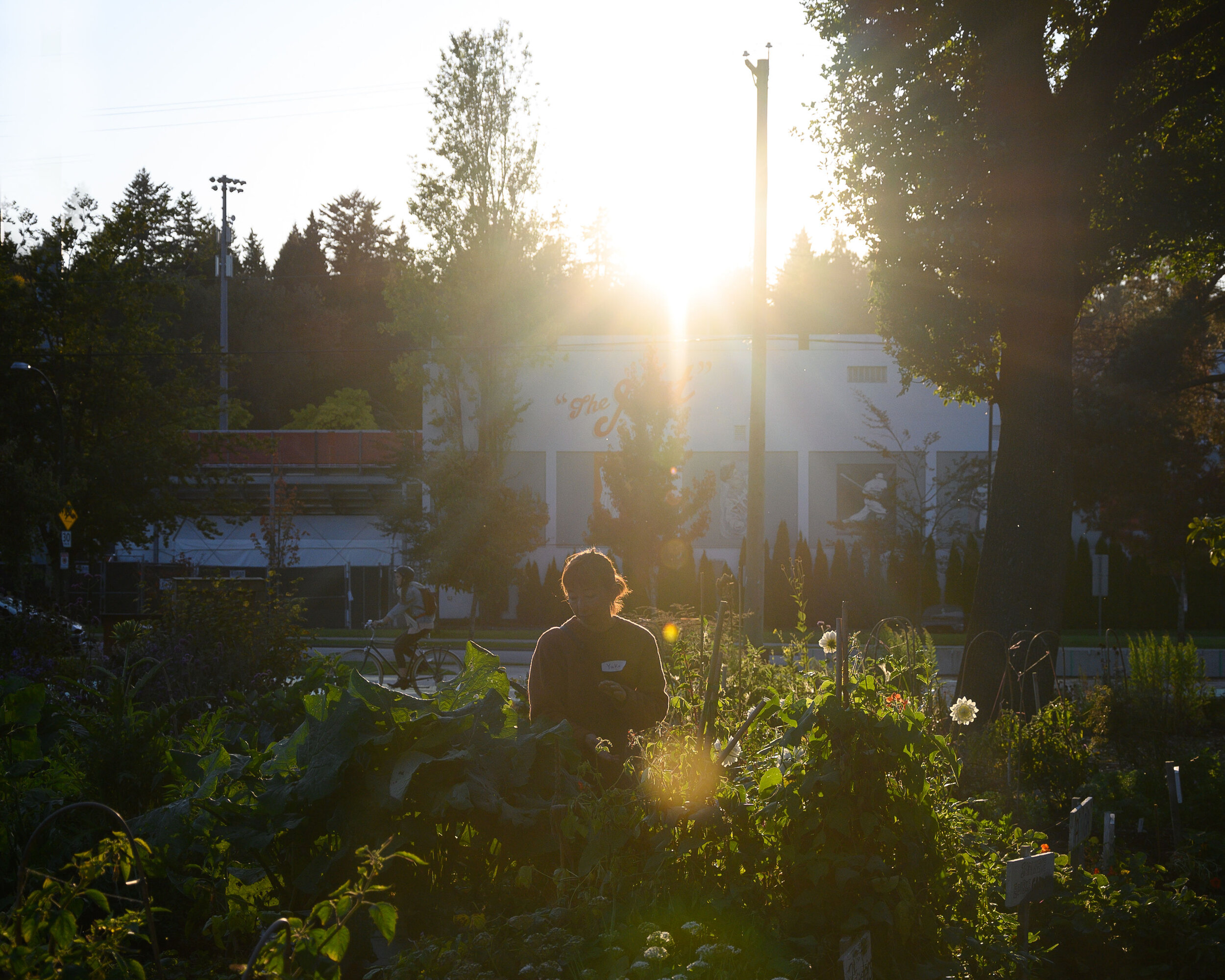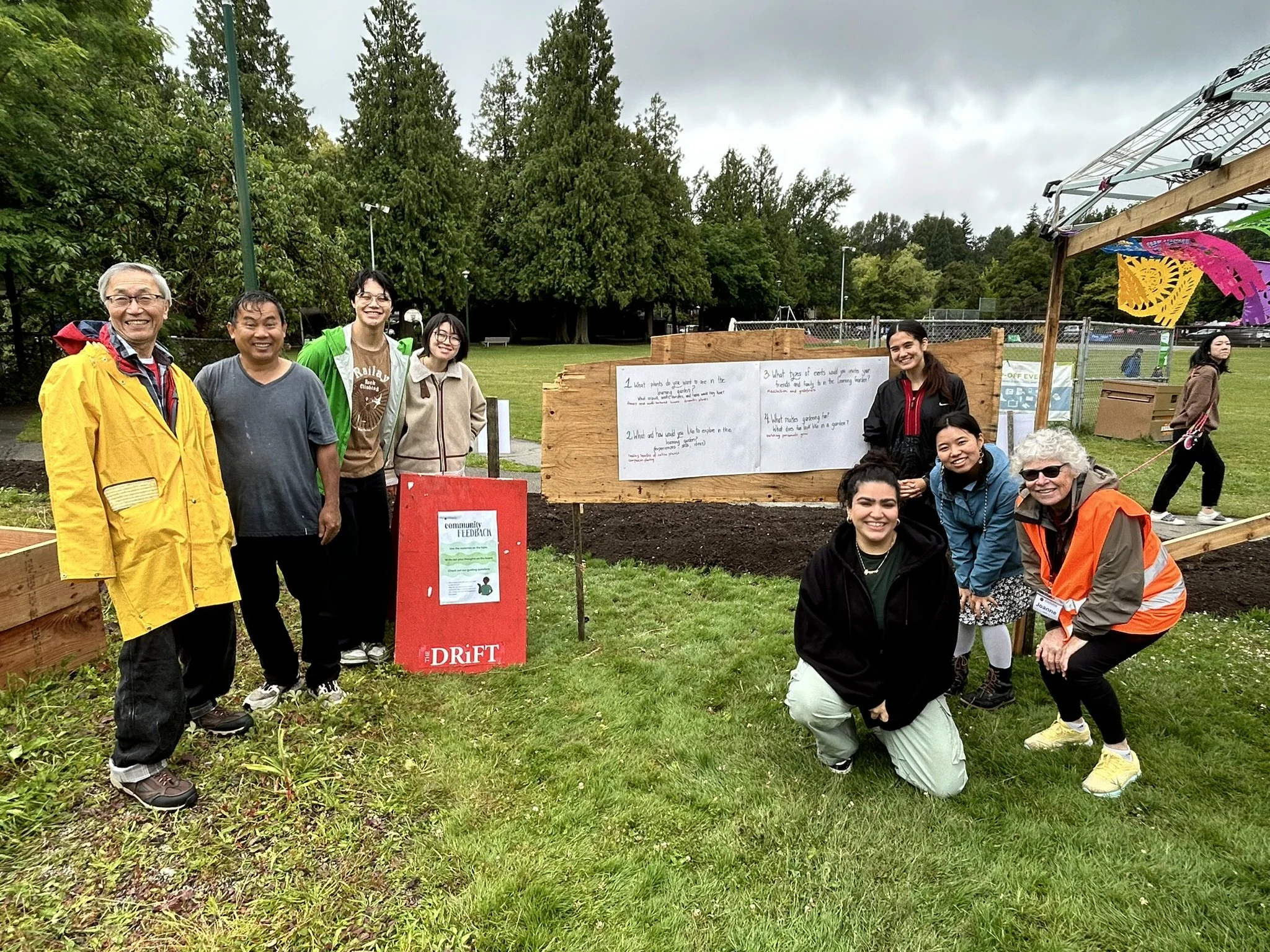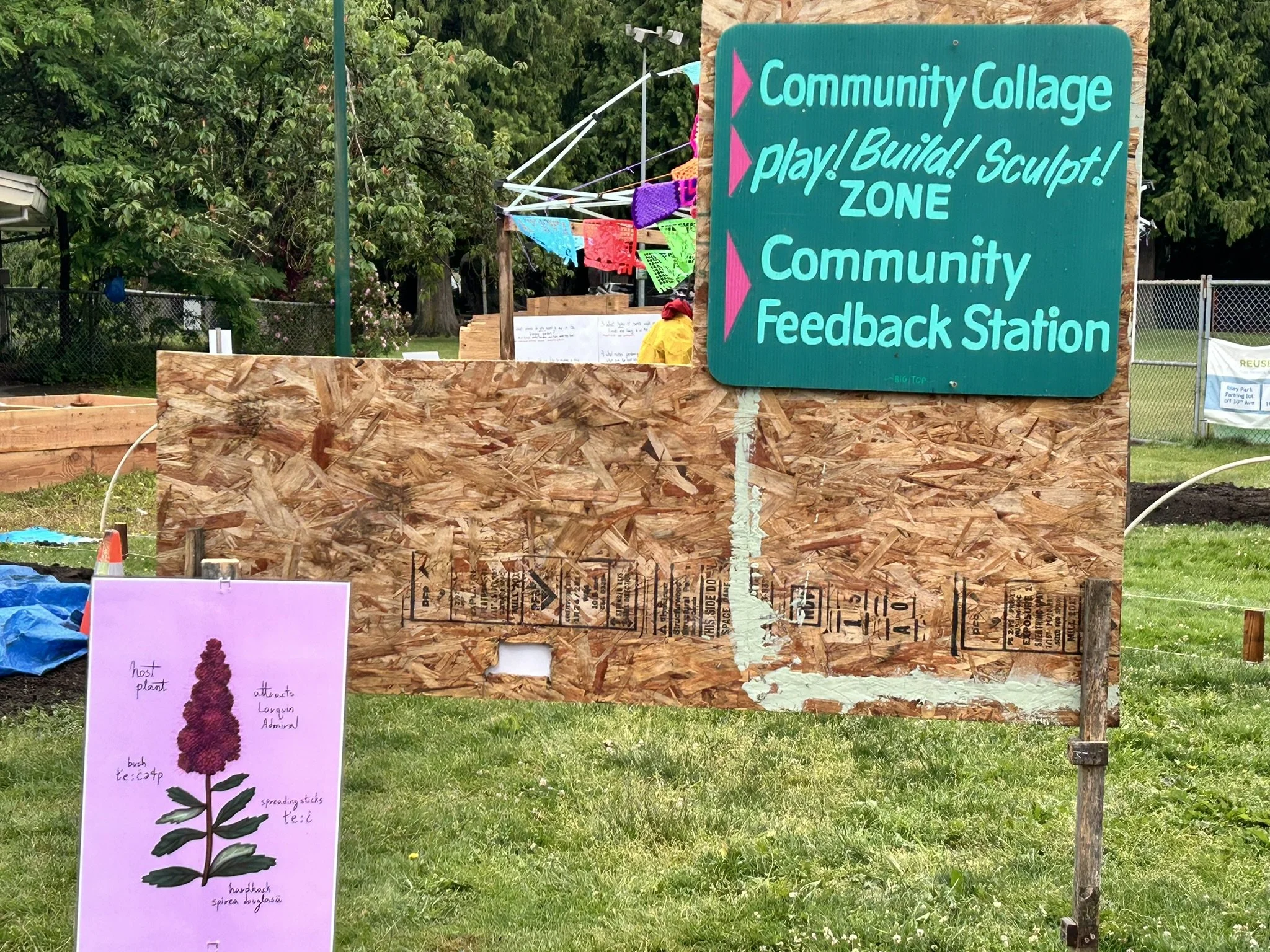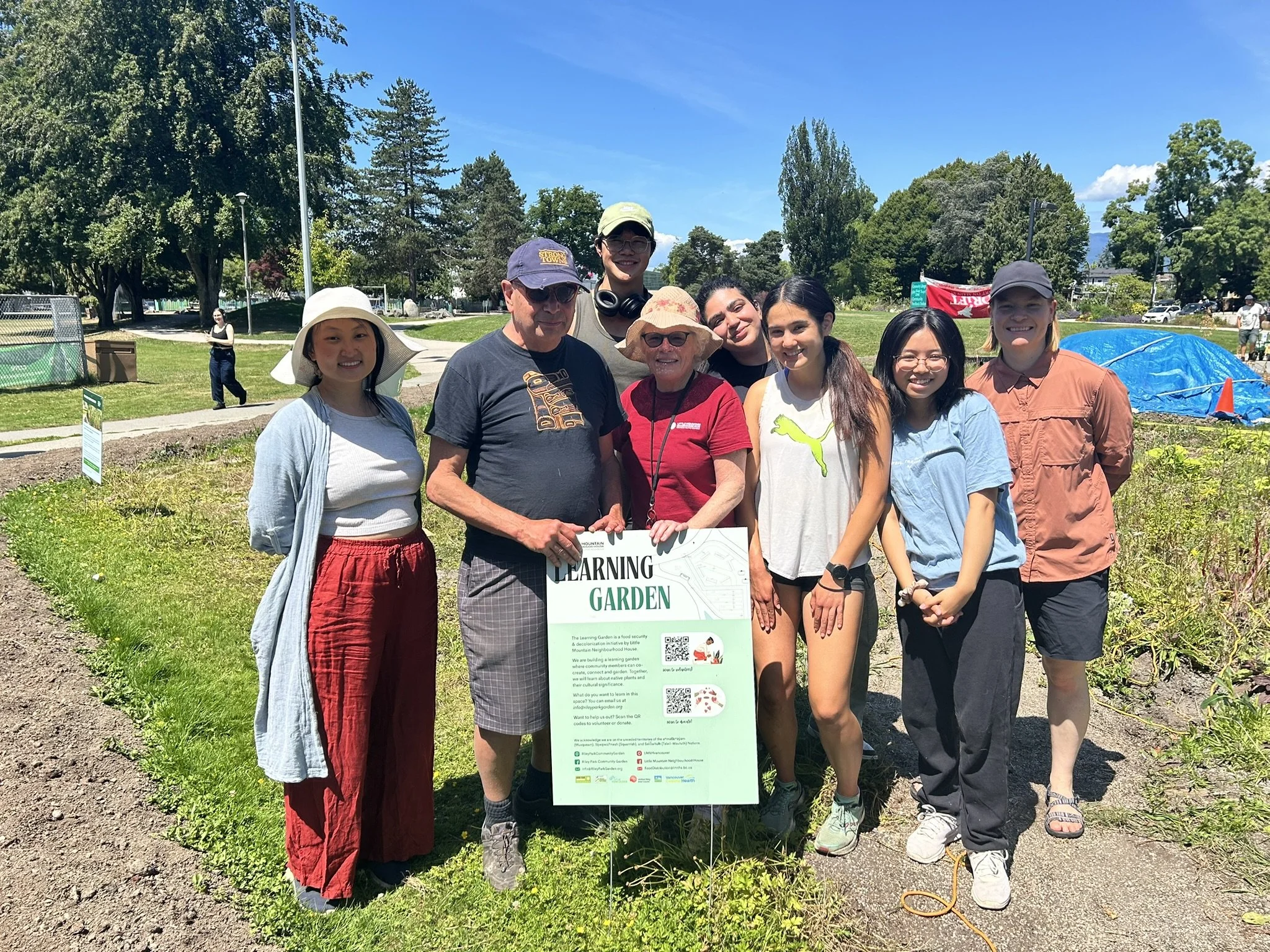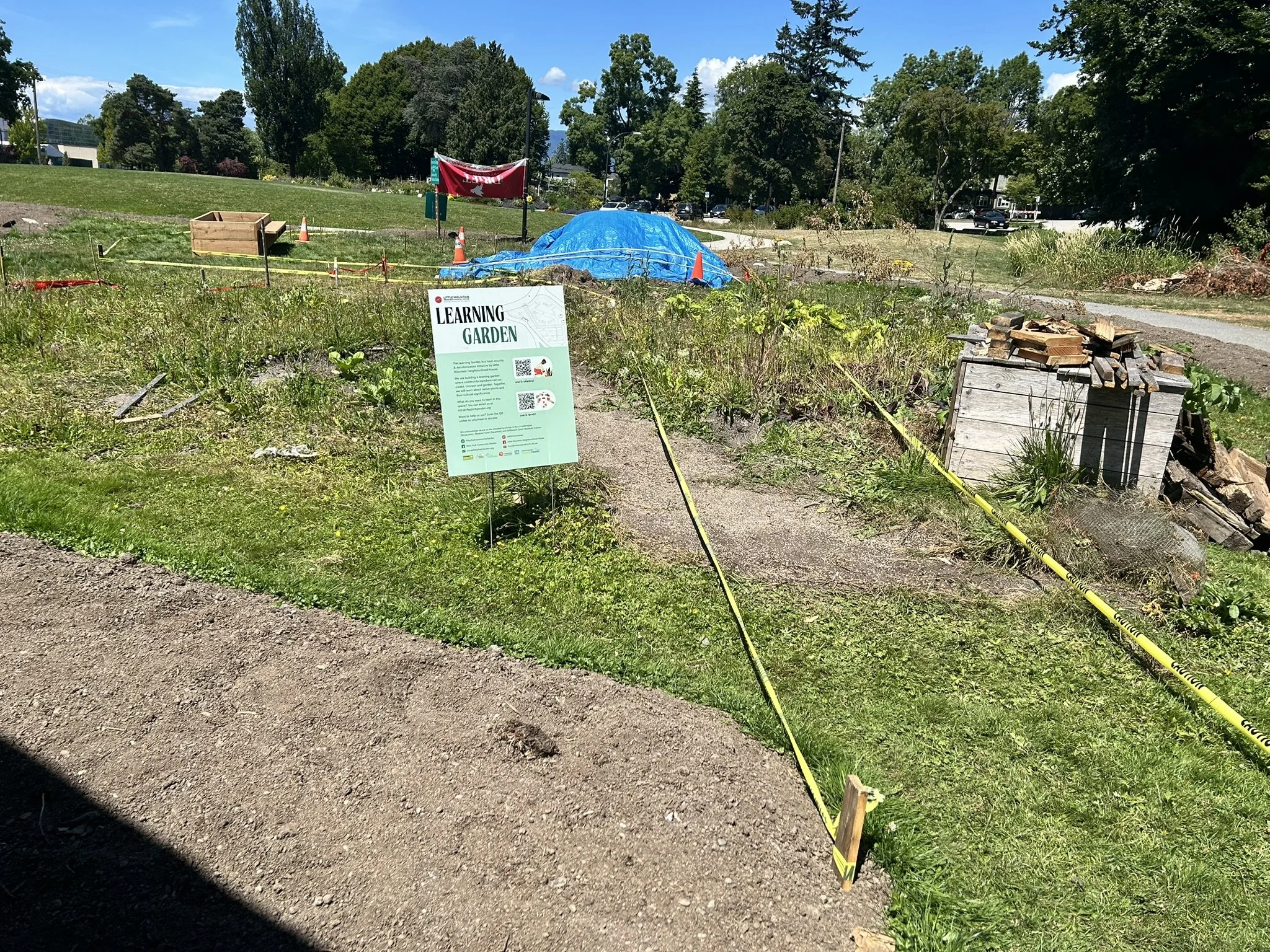Our Gardens
The Riley Park Community Garden is a story of opportunities. An opportunity to address the needs of the community, to strengthen our existing connections, and to create new connections.
We aim to address food security and community involvement, and bring our community members closer through participation, education, and events. Our gardens are inclusive gathering points that reflect our core visions to improve food security, ecological sustainability, and community development. We promote food security by supporting those in our community who need extra food support. Our gardens are collective public spaces where people can engage in co-creation, feel a sense of belonging and ownership, and increase networks. Long term sustainability depends on the development of social capital and the intention to grow produce that may be given back to the community.
The places we steward in Riley Park allow our vision to be implemented by:
creating hubs for discussion, ensuring that our garden green spaces are community-based, both in theory and practice;
using public spaces for skills development;
creating discussion spaces where community members leverage collective expertise and local resources; and
supporting food literacy education.
Our gardens reflect the commons design principles guided by the eight design principles for sustainable management of Common Pool Resources, developed by Nobel laureate Elinor Ostrom.
History
The demolition of the Riley Park Community Centre in 2012 saw a need for an alternative community gathering point. When the VPB approved a community garden, a group of dedicated and enthusiastic volunteers with diverse experience in horticulture, landscape architecture, art, and soil science gathered to create what we know as the “Riley Park Community Garden.”
The community garden encompasses an area of 1065 square metres in Riley Park along East 30th Street, extending approximately 30m along Ontario Street and is bounded on the South. The dimensions of the garden are roughly 50m from East to West and 30m from North to South.
Riley Park Community Garden
In our garden, we share food equally. We share customs and stories around the food we grow and eat together. We promote generosity. Our priority is to support those who are food insecure in Little Mountain Riley Park. Those who come to the work parties will also get produce. Everyone is welcome.
Vegetable production in our Main Garden is with Accessible Beds: 5 accessible beds, 1 m wide by .6 - .9 m high; and Raised Beds: 14.5 ground level beds, 1 m wide by .3m high, intended for annual vegetable production.
Learning Garden
Located in Riley Park, there is a space we call "Ed's Garden". It is named after Ed Shum, a long-time resident who led the stewardship of the space for over 40 years. After Ed retired from the garden, LMNHS stepped in to redevelop the space. The focus of its new design is place-based education through an Indigenous lens, for all ages and mobility needs. It is an accessible and inclusive space that promotes community, increases food security, and honours the Musqueam nation.
From gathering community input on what the space should look like, to creating a native plant plan for the space with UBC students and Sniw Cultural Consultant and ethnobotanist Zarah Martz, to volunteers moving donated soil, building planter boxes, staking out the walkway, gathering space, and accessible garden beds, and organizing regular work parties… the power of community has been gathering to co-create this space.
The Field House — Potting Studio
The “Potting Studio” is used to house garden tools and supplies, host community meetings on food literacy, and facilitate workshops to improve food security, ecological sustainability, and community development.
Little Mountain Neighbourhood House Society has agreements with the Vancouver Parks Board (VPB) to steward the Potting Studio, the Riley Park Community Garden, and the Learning Garden.
The video was created by SFU, School of Interactive Arts and Technology students with support from the City Studio Program.
The Shed
The Shed is a space for community residents to meet, learn, teach, store, and create. It represents the Greenest City Action Plan to demonstrate re-purposed materials, rainwater harvesting and collection, renewable energy with wind and solar power, and to store garden tools. It is our Riley Park Science World.


